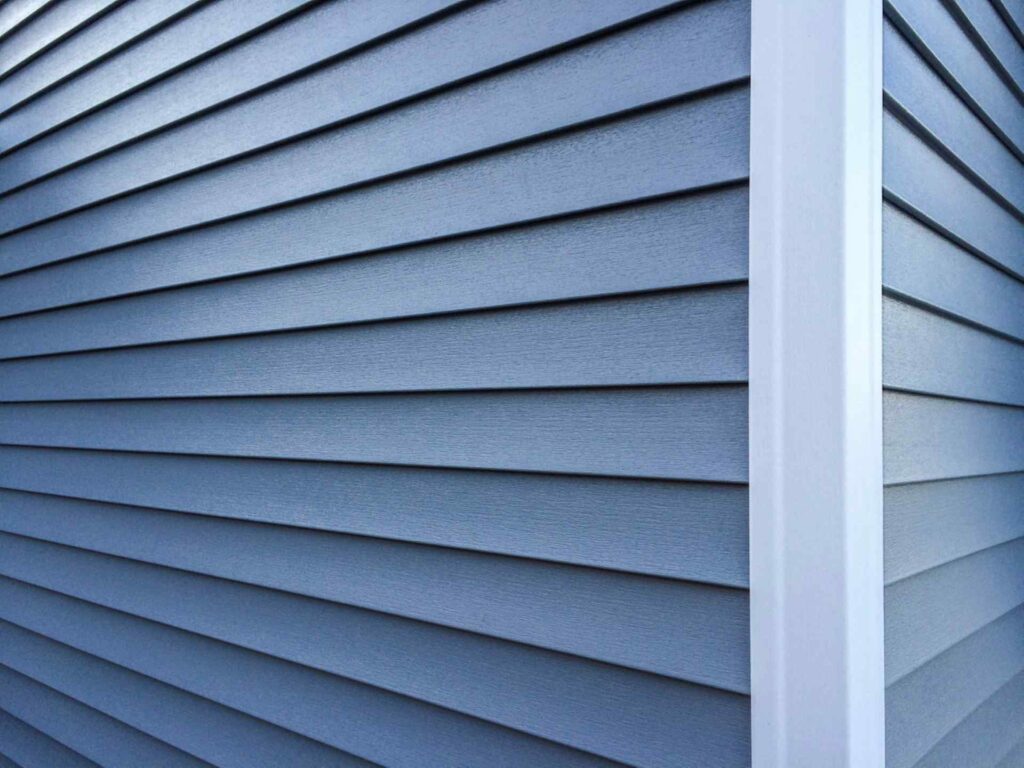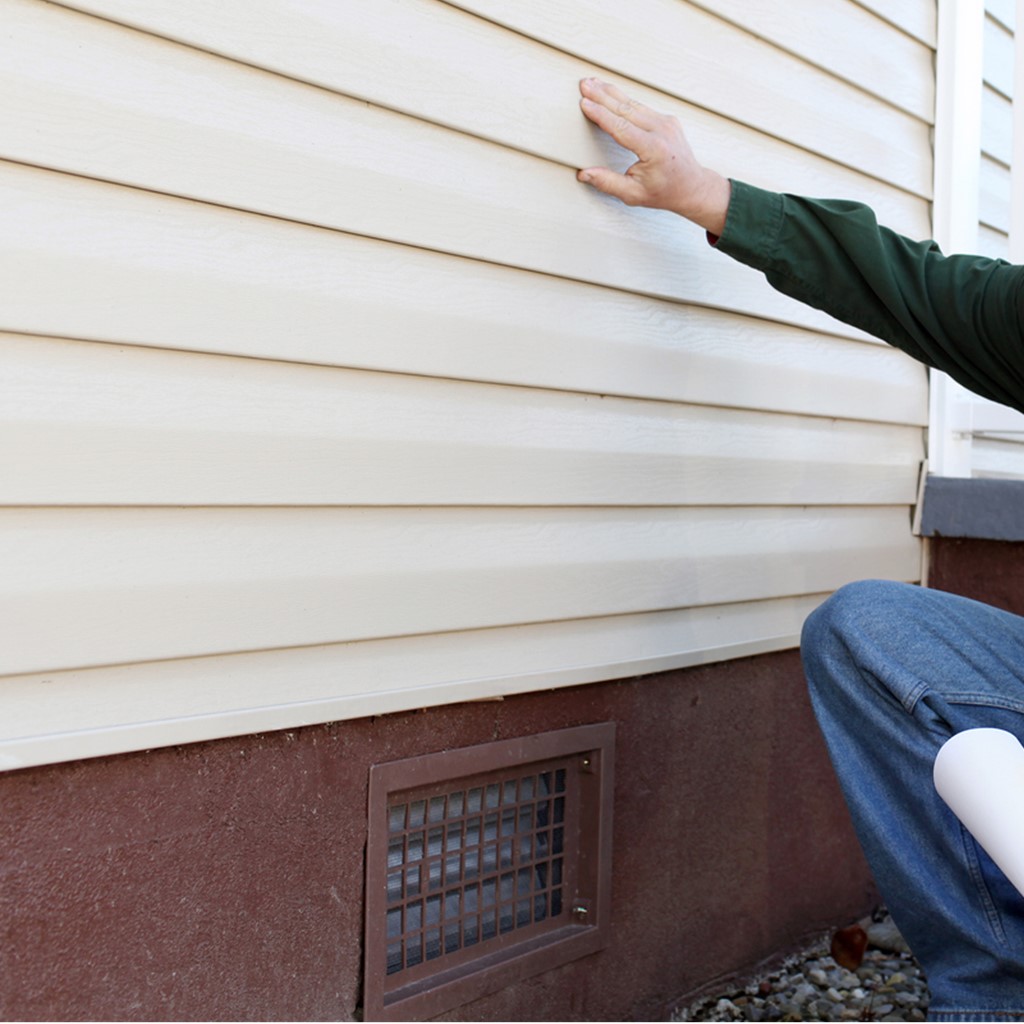When it comes to giving the exterior of your home an aesthetic appeal, siding is the best way to go. Not only does it look fantastic, but siding also offers some functional benefits to boot; from energy efficiency to protection against the elements. The key question, however: what’s the best material for siding? While there are numerous materials that can be used for siding purposes, today we’re going to compare two increasingly popular options in the US: aluminum and vinyl siding. So, which is better when it comes to aesthetic appeal, resistance, cost, and efficiency? Let’s take a look.
All About Aluminum Siding
Characteristics and Features
Aluminum siding is a popular material thanks to both its durability as well as its sleek appeal; aluminum is lightweight yet sturdy, and can often be coated or painted to suit a range of different architectural styles. Another distinguishing feature of aluminum siding is its ability to resist corrosion and rust; this makes it an ideal choice for homes in areas with high humidity, as well as coastal environments.
Advantages of Aluminum Siding
As mentioned, the primary advantage of aluminum siding is in its exceptional durability; not only is it resistant against extreme temperatures and to pests like termites, but it’s also fire-resistant, which adds an extra layer of safety and security for your home. Also, aluminum siding can be repainted, meaning that you have the flexibility to change the appearance of your property without the need for complete siding replacement.
Aluminum Siding Drawbacks
Despite its strength and aesthetic appeal, aluminum siding does come with quite a lot of drawbacks: firstly, it can be prone to impact and scratches, usually from adverse weather. Additionally, the color of aluminum can fade or chalk under the sun's UV rays, which means repainting is often required to maintain its appearance. Aluminum siding can also be a more costly option compared to other materials, so it might not be your best bet if you’re working on a tight budget.
All About Vinyl Siding
Characteristics and Features
Onto vinyl, vinyl siding is an incredibly versatile and economical choice, and a popular choice in the US thanks to its wide range of styles and color options. Made from durable PVC (polyvinyl chloride) plastic resin, vinyl is low maintenance while also promising longevity. And when it comes to aesthetics, vinyl siding can also mimic the look of wood grain, stone, or other textures, so you can effectively get the ‘look’ of more expensive materials, without the hefty price tag.
Advantages of Vinyl Siding

One of the most significant benefits of vinyl siding is its cost-effectiveness; it’s generally more affordable than aluminum siding and offers a high return on investment thanks to its durability - as well the fact it requires very little maintenance and rarely needs to be repainted. Vinyl siding is also resistant to moisture, rot, and pests, ensuring a long-lasting, pristine appearance. It’s also easy to clean, usually requiring only a hose-down or gentle washing to remove dirt and debris. Additionally, vinyl siding is available in a broad spectrum of colors and styles, making it easier for you to find an option that complements your home's style.
Disadvantages of Vinyl Siding
Vinyl siding does have some limitations; for example, it’s not as heat resistant as aluminum, making it more susceptible to damage in case of fire. And if poorly installed, vinyl also may not provide the same level of insulation as other siding materials. At Rise Renovation, we offer only the highest quality vinyl siding, with vinyl manufactured right here in the United States. We also provide the safest and most efficient 5-step installation process for all of our siding projects, including safety checks and final inspections to ensure efficiency. So if you’re looking for a siding contractor in Denver, we’ve got you covered.
Aesthetics and Design Options
Both aluminum and vinyl siding offer diverse aesthetic and design options to suit a range of architectural styles. Aluminum siding provides a traditional, timeless look that can be customized through painting. Its ability to mimic other materials, such as wood, allows for design versatility. On the other hand, vinyl siding offers a broader range of colors and textures. Its ability to replicate the appearance of wood, stone, or even shingle siding makes it a flexible choice for modern or traditional homes.
Vinyl vs. Aluminum: Which is Best?
Overall, when it comes to vinyl vs. aluminum, vinyl siding stands out as the clear winner. Not only is it more affordable than aluminum, but it also offers significant savings over time due to its minimal maintenance requirements. And unlike aluminum - which may require repainting and can be prone to denting - vinyl maintains its appearance for years without the need for touch-ups.
Secondly, vinyl siding excels in terms of ease of installation and versatility in design; it's engineered for quick and straightforward installation, and the range of styles and colors offers you as a homeowner the ability to choose the perfect look to complement your property’s architecture. From mimicking wood and stone, to providing a variety of color options, vinyl siding allows for full personalization and aesthetic appeal that can elevate the curb appeal of any home.
Energy Efficiency
Finally, the superior energy efficiency of vinyl siding cannot be overstated: with its excellent insulation properties, vinyl siding plays a crucial role in maintaining a comfortable indoor temperature, which also results in potentially lower heating and cooling costs. For homeowners concerned about energy consumption and its impact on the environment, vinyl siding also offers an eco-friendlier option; when combined with insulated backing, it becomes an even more effective barrier against temperature fluctuations.
Ultimately, aluminum siding, while durable, does not naturally offer the same level of insulation, efficiency, aesthetic customization and protection that vinyl siding offers.
